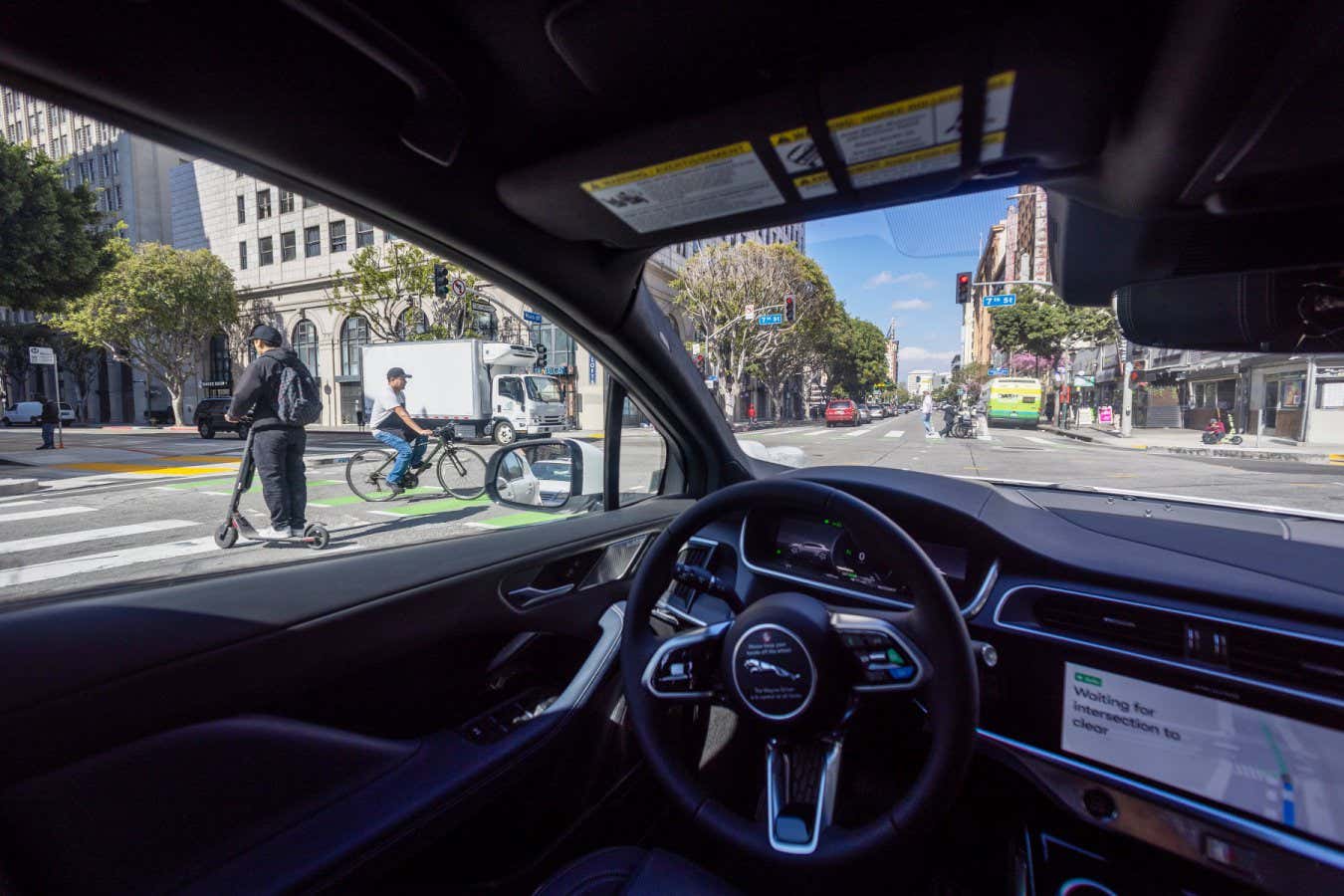
A driverless car in downtown Los Angeles
Allen J. Schaben/Los Angeles Times/Getty Images
The artificial intelligence systems that control driverless cars can still struggle to predict the sudden appearance of other vehicles, cyclists and pedestrians – but a new algorithm has shown how they can more accurately anticipate the presence of such hidden objects, and predict their movements.
“We ensured that it captured real-world complexities like hidden pedestrians or cyclists moving unpredictably,” says Hari Thiruvengada at VERSES AI, a cognitive computing company headquartered in California. “We added occlusion reasoning to help anticipate the behaviour of road users hidden from direct…
